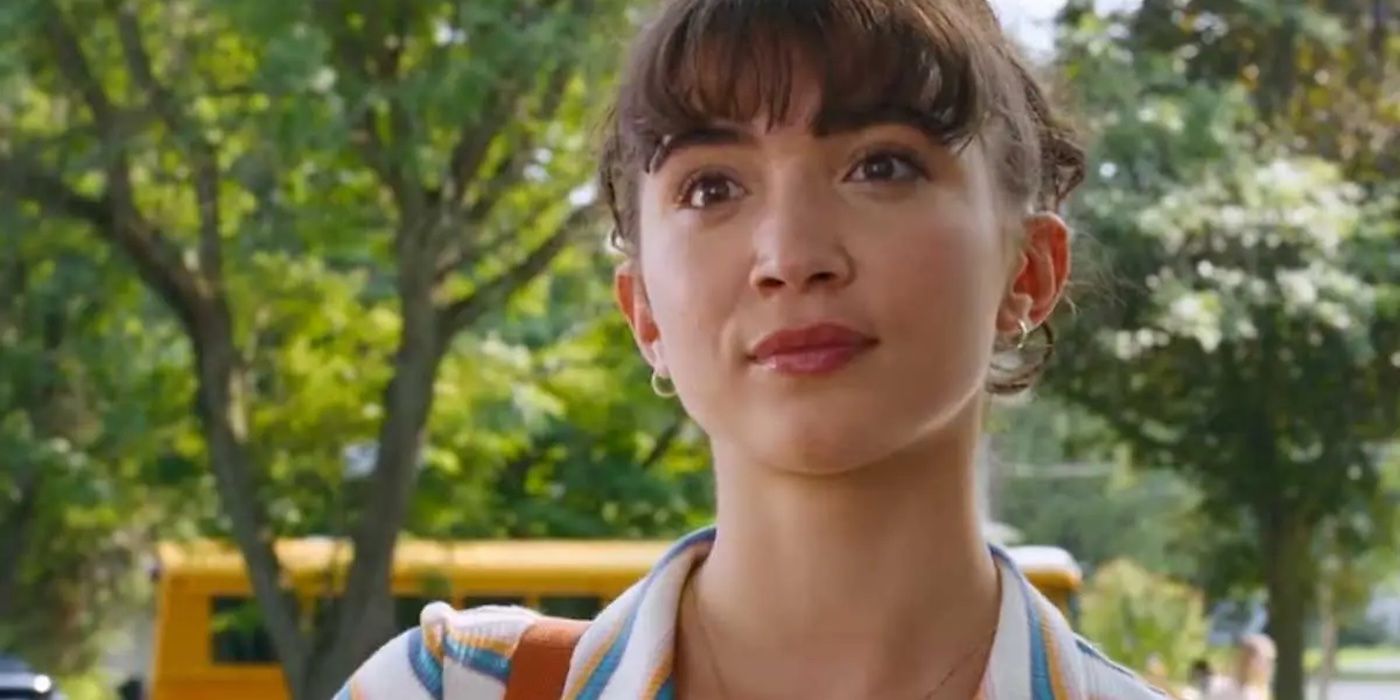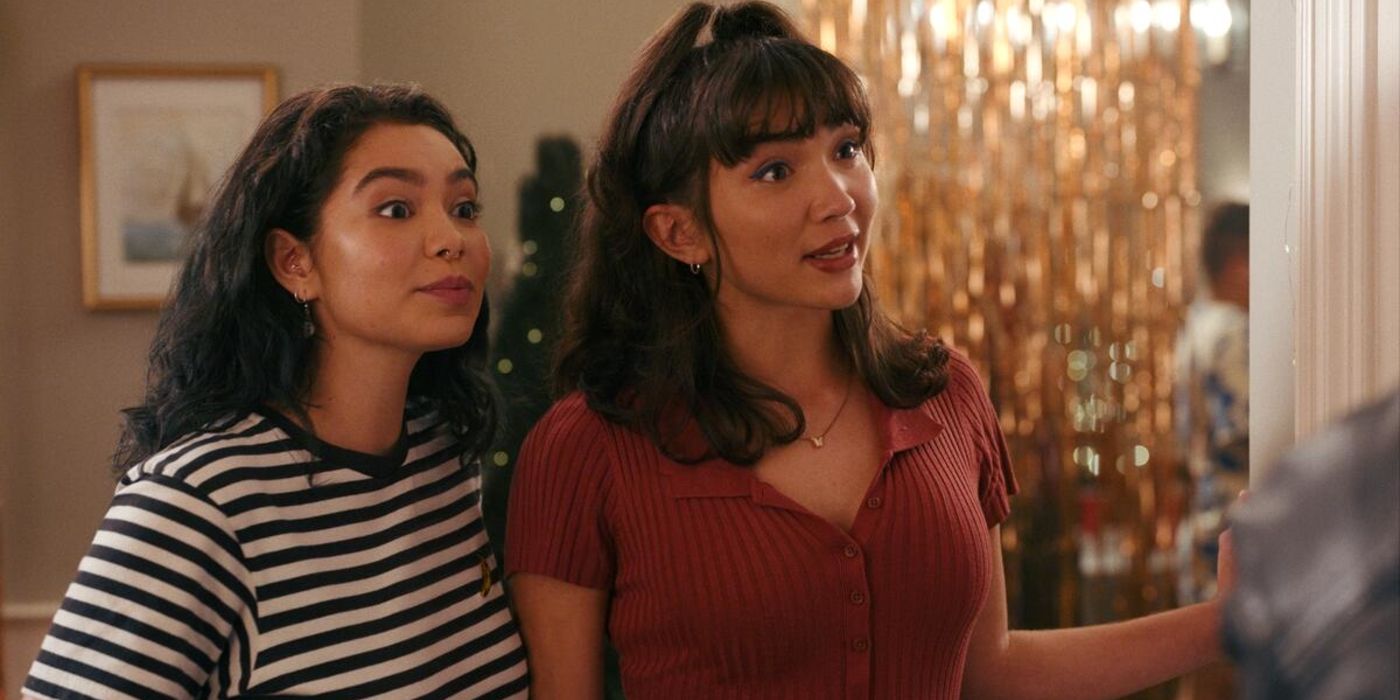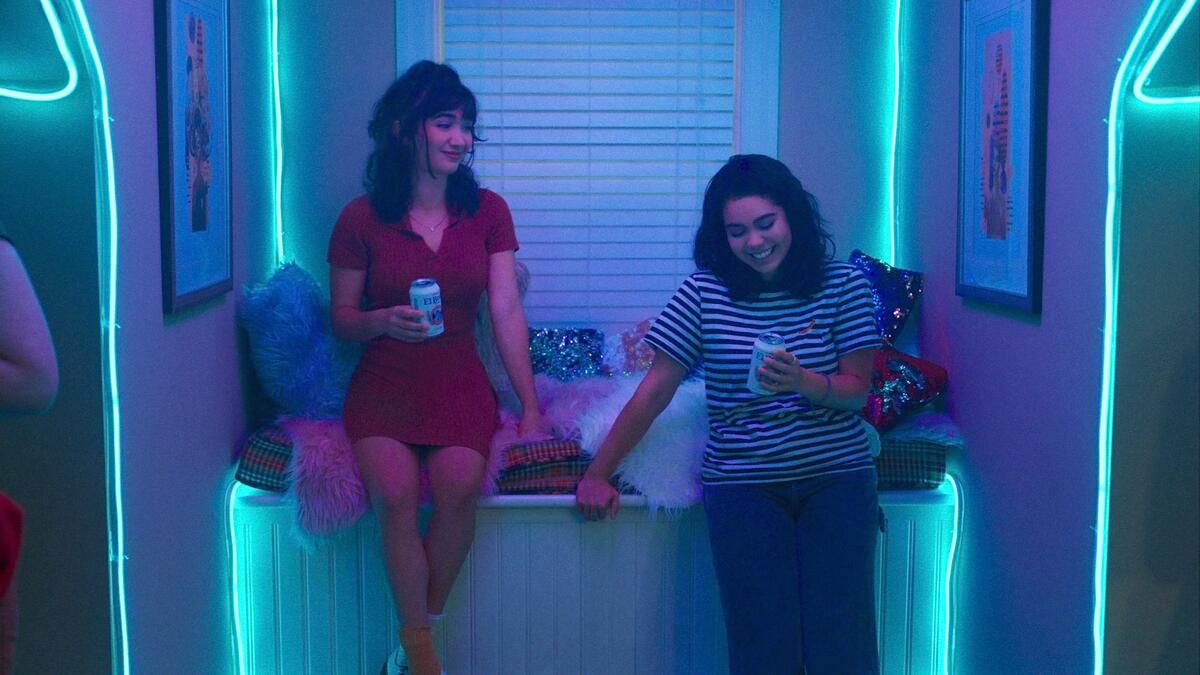Romantic comedies have this sense of predictability. They are formulaic, and that formula has worked for so long. It isn’t always good; it sometimes brings a film down, but then there are times when it plays into those tropes that we know, and everything just falls into place. Times where using tropes and predictability works for the better; Hulu’s Crush is one of those times.
Queer happiness is often not a given in films and television shows. The stories that a queer audience consumes will usually be centred around queer suffering or coming of age stories. That doesn’t always mean that it isn’t necessary; some of the best queer films have been somewhere happiness is not always a given, but it can become exhausted for an audience to watch themselves suffer day in and day out without ever an inch of happiness.
Paige (Rowan Blanchard), a high-school artist, joins her school's track team to get closer to the girl she has a crush on, Gabriela (Isabella Ferreira). Not knowing anything about track, her coach assigns her teammate AJ (Auliʻi Cravalho) to train her. As Paige and AJ's relationship develops, Paige finds herself in a dilemma over who she should be pursuing.
In this film, being queer is nothing extraordinary; it seems to be the norm. Within the first 30 minutes of the film, a montage of Paige’s best friend, Dillon (Tyler Alvarez), starts going through the other options for Paige. It’s played as a joke, with every girl having a quirk that Paige would not be able to get behind, but it is something so out of this world when it comes to romantic comedies, something where a queer audience receives the same treatment as a straight one.
Crush doesn’t change the formula; it relies heavily on it, but this air of freshness follows it. There are never questions about sexuality, and instead, the film lives in this bubble of happiness and acceptance when it comes to gender and sexuality. That sentiment of acceptance isn’t usually placed in LGBTQ+ films centred around teenagers. Sure, there is a typical coming-out scene when Paige flashes back to her younger self telling her mother (Megan Mullally) that she is gay, but her saying those words doesn’t directly affect the story. It doesn’t even play a genuine part in it, and it’s a simple exposition for us to understand Paige and her relationship with her mother.
But without ever being about coming out, the film subtle hints at the other side of the coin with AJ’s character. A mysterious jock who lives in her twin sister's shadow, AJ represents everything that Paige is not. That includes the juxtaposition of AJ’s relationship with her coming out. It’s subtle, but when AJ talks about it she doesn’t seem to describe it as Paige did earlier in the film, considering it one of her happiest memories. They don’t make a big show of it, simply mention it in a conversation, but the film can expand without changing the story with that one conversation. It’s a small thing, but it proves efficient in a way that doesn’t bring the film into another realm.
It’s these little moments that make Crush special. Because it still addresses all the things we expect from a film centred around queer teenagers, it decides to put it as a backdrop for the central love triangle instead of at the forefront like most films. The main love triangle is all out and proud, and their sexuality is never questioned; rather, it is placed front and center, defining pretty much everything. Relying heavily on tropes that the audience knows and understands should not have worked the way it does. Love triangles are nothing new but centred around three women is not the norm.
The love triangle between Paige, Gabriela, and AJ is familiar to anyone who has watched a romantic comedy before. It doesn’t reinvent it; the nerd in love with the popular girl only to fall for the more mysterious one is nothing new, but having it centred on three women makes it different. And that is where the beauty of this movie lies; it never seems to bother into being anything but a love story. Sure, it is about two girls, but that doesn’t matter. It is just that, a love story. The film doesn’t try to make a big show of it; being queer is the norm.
Queer happiness is just present, and the film relies heavily on it. And that breath of fresh air makes it that Crush is unlike most queer films we have seen before. The cheesiness of it all might be over the top, but that is okay because, for once, we get what we never get—a cheesy romantic comedy that is not about coming out but simply about love.




